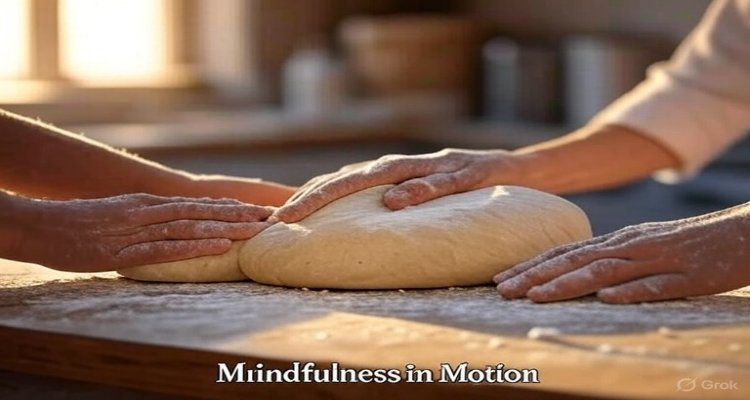Why Bread-Making is the New Meditation

Bread-making is emerging as a modern form of mindfulness. Discover why kneading, waiting, and baking are being embraced as the new meditation.
Introduction: A Loaf of Calm in a Chaotic World
In a time when screens dominate our days and stress levels remain high, a surprising ritual has become a source of calm: bread-making. For many, the act of mixing flour, water, yeast, and salt isn’t just about food—it’s about slowing down. The simple, rhythmic process has become a new form of meditation, offering relief from digital overload and daily anxieties.
Context & Background: From Survival to Self-Care
Bread has been central to human civilization for over 10,000 years, often seen as a symbol of survival and community. During the COVID-19 pandemic, bread-making soared in popularity. Grocery store shelves ran out of yeast, sourdough starters went viral on social media, and countless people rediscovered the joy of baking at home.
What began as a way to cope with lockdown boredom has since evolved into a long-term lifestyle choice. Today, bread-making is less about necessity and more about intentional living—aligning closely with the principles of mindfulness and meditation.
Main Developments: The Rise of “Mindful Baking”
Unlike fast food or instant meals, bread demands time and attention. Dough needs to be kneaded, left to rise, shaped, and baked. Each stage requires patience, creating natural pauses in a fast-paced life.
Many wellness coaches now refer to this process as “mindful baking.” The tactile sensation of dough, the quiet waiting during fermentation, and the aroma filling a kitchen encourage people to stay present in the moment. Much like meditation, bread-making invites a focus on breath, rhythm, and awareness—except with the reward of a warm loaf at the end.
Expert Insight & Public Reaction
Psychologists highlight the therapeutic power of baking. Dr. Sarah Klein, a clinical psychologist, explains:
“Bread-making engages the senses in a way that naturally reduces stress. The repetitive motions, combined with anticipation of a positive outcome, mimic meditative practices.”
Professional bakers echo this sentiment. Artisanal baker John Matthews describes it as “a dialogue with nature—yeast is alive, and you’re working in partnership with it.”
On social media, hashtags like #BreadTherapy and #MindfulBaking have amassed millions of views, with home bakers sharing not just recipes but reflections on how the practice improves their mental well-being.
Impact & Implications: Beyond the Kitchen
The mindfulness trend has transformed bread-making from a kitchen skill into a cultural movement. Wellness retreats now include sourdough workshops. Urban bakeries market their bread not just as food but as “edible mindfulness.”
Moreover, the practice connects people back to traditions often lost in modern convenience culture. For younger generations raised on instant gratification, bread-making teaches patience and resilience. For older ones, it revives memories of family kitchens and community gatherings.
The implications reach beyond personal health: bread-making also encourages sustainable living. By baking at home, people reconnect with local ingredients, reduce processed food consumption, and revalue the time it takes to create something nourishing.
Conclusion: Bread as a Daily Ritual of Presence
In many ways, bread-making is the meditation our modern world didn’t know it needed. It offers a rare balance of productivity and peace, grounding individuals in a practice that is both ancient and deeply human.
As technology continues to accelerate daily life, more people are turning to the kitchen to knead away stress, let dough rise alongside their patience, and savor the final golden crust. Bread, it seems, is no longer just food—it’s a mindful ritual for the soul.
Disclaimer : This article is for informational and cultural purposes only and should not be considered medical or psychological advice. For mental health concerns, consult a licensed professional.










